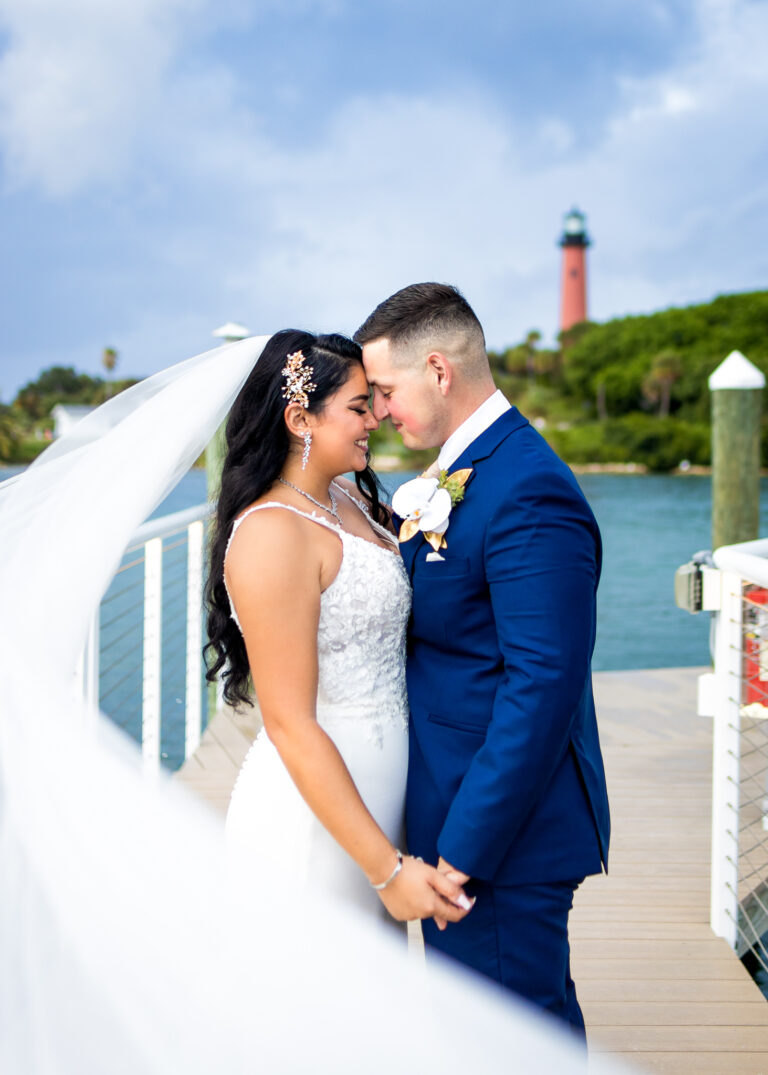Alcohol And Breast Cancer Schonfeld SJ, Pfeiffer RM, Lacey JV Jr, et al. Chen WY, Rosner B, Hankinson SE, et al. For postmenopausal cancer, in the meta-analysis of dose-response, the association was statistically significant only for studies of Europe and North America. Alcohol intake and breast cancer risk in African American women from the AMBER Consortium. Breast Cancer Low-to-moderate alcohol intake is associated with the risk of estrogen receptor-positive breast cancer with the strongest association in postmenopausal women. In one study, alcohol consumption and risk of human epidermal growth Because of this, some people may worry that eating the phytoestrogens found in soy could increase estrogen in their bodies and encourage breast cancer growth. Alcohol and breast cancer: Whats the connection? In this study, we investigated the effects of alcohol on growth factor and estrogen signaling, gene regulatory networks involved in clinical outcomes in breast cancer patients, the effects of alcohol on tamoxifen response in ER+ cell lines, as well as the functions of alcohol-regulated genes in breast cancer cell proliferation. WebResults: Alcohol consumption was positively associated with risk of ER+ and ER- breast The subtypes may have different risk factors, and they are different in terms of aggressiveness, treatment, and prognosis. Some types of cancer, such as hormone receptor-positive breast cancer, use human estrogen to grow and spread. Endogenous estrogensbreast cancer and chemoprevention Alcohol consumption in relation to plasma sex hormones, prolactin, and sex hormone-binding globulin in premenopausal women. Testosterone and Breast Cancer Risk WebAre soy foods safe for breast cancer survivors, including women who were treated for estrogen receptor positive breast cancer? Since alcohol intake is a modifiable risk factor of breast cancer, every woman should be informed and advised to control alcohol use. An official website of the United States government. The fact that several studies support the hypothesis that alcohol is more strongly related to ER positive than to ER negative breast tumours underlines the pathogenic role of estrogens in alcohol-mediated breast cancer. Breast cancer DNA methylation profiles are associated with tumor size and alcohol and folate intake. Nulliparity and alcohol consumption also are associated with increased risk. Foods, macronutrients and breast cancer risk in postmenopausal women: A large UK cohort. Alcohol consumption and breast cancer risk by estrogen receptor status: In a pooled analysis of 20 studies. Alcohols effects on oxidative stress, cell proliferation, steroid hormones, and one-carbon metabolism may explain, in part, the observed associations with breast cancer risk. Milk Thistles Positive Estrogenic Effects. Alcohol can raise estrogen levels in the body, which may explain some of the increased risk. WebBreast cancer: Drinking even small amounts of alcohol is linked with an increased risk of breast cancer in women. Intakes of alcohol and folate during adolescence and risk of proliferative benign breast disease. Trinh T, Christensen SE, Brand JS, et al. Alcohol consumption and urinary estrogens and estrogen metabolites in premenopausal women. Zeinomar N, Thai A, Cloud AJ, et al. Alcohol WebDense breast tissue: Based on its appearance in a mammogram is a known risk factor for breast cancer. Alcohol drinking, ADH1B and ADH1C genotypes and the risk of postmenopausal breast cancer by hormone receptor status: The Netherlands Cohort Study on diet and cancer. Unlike endometrial cancer, the association with current smoking appears to be similar in pre- and post-menopausal women. Reproductive factors that increase exposure to endogenous estrogen, such as early menarche and late menopause, increase risk, as does the use of combination estrogen-progesterone hormones after menopause. Excess exposure to estrogen raises cancer risk. The U.S. government does not endorse or favor any specific commercial product or commodity. Breast cancer One study reported an increased risk of breast cancer recurrence with alcohol consumption after diagnosis among premenopausal but not postmenopausal women.64 In another study, investigators found no association between postdiagnostic intake and breast cancerspecific mortality.63 There was better overall survival for those with greater postdiagnostic alcohol consumption. There may be other ways that alcohol increases the risk of breast cancer, but these are not yet clear. Breast Cancer 25 More studies are needed to Prospective evaluation of alcohol consumption and the risk of breast cancer in. When examining the effects of alcohol consumption on health and disease, how participants consumed the alcohol must be considered. The risk was mostly pronounced for ER + /PR tumors. Awareness tends to be greater among women who have been diagnosed with breast cancer, with resulting lower alcohol intake in that group. Liu Y, Colditz G, Rosner B, et al. It is time for a focus on developing public understanding of alcohol, which is a very common exposure, and its connection with increased risk of breast cancer. Newcomb PA, Kampman E, Trentham-Dietz A, et al. Hahn M, Simons CCJM, Weijenberg MP, et al. Can eating soy increase your risk of breast cancer? This article was supported in part by the New York State Department of Health award C33916GG. Hirko KA, Spiegelman D, Willett WC, et al. Maintain a healthy weight. Since estrogen can cause breast tumors and ovarian tumors via similar mechanisms, alcohol consumption could potentially raise your ovarian cancer risk by changing your hormone levels. Most of the growth-inducing effects of estrogens are exerted by their link to ER. After menopause, higher amounts of estrogen in the blood are linked to an increased risk of breast cancer in women . and Estrogen Castro GD, Delgado de Layno MA, Fanelli SL, et al. The data indicate that alcohol consumption is mainly involved in the incidence in ER + and/or PR + breast cancer. Association between alcohol consumption and cancers in the Chinese populationA systematic review and meta-analysis. Alcohol Can Alcohol Increase the Risk of Breast Cancer Recurrence? 40 Although alcoholic beverages contain a variety of compounds, for breast carcinogenesis, alcohol itself appears to be the more important carcinogen,66 consistent with the finding that overall, risk does not differ based on the type of beverage consumed. Alcohol consumption in relation to aberrant DNA methylation in breast tumors. Hvidtfeldt UA, Tjonneland A, Keiding N, et al. 2020;40(2):11.https://doi.org/10.35946/arcr.v40.2.11. Overall, there is strong evidence that alcohol increases breast cancer risk. Alcohol Res. Alcohol intake between menarche and first pregnancy: A prospective study of breast cancer risk. Alcohol consumption as a risk factor for breast cancer development: A case-control study in Brazil. Lee SM, Park JH, Park HJ. Alcohol can change the way a womans body metabolizes estrogen (how estrogen works in the body). This can cause blood estrogen levels to rise. Estrogen levels are higher in women who drink alcohol than in non-drinkers [ 18 ]. Higher estrogen levels are in turn, linked to an increased risk of breast cancer [ 18 ]. Information about grade and proliferation (rate of cell division) is also sometimes used to assign subtype. Alcohol and DNA methylation: An epigenome-wide association study in blood and normal breast tissue. increase levels of estrogen, which is a hormone involved in breast tissue 9 Estrogen levels are higher in women who drink alcohol than HER2-Positive Breast Cancer Diet - Healthline Alcohol consumption and the risk of cancer in Brazil: A study involving 203,506 cancer patients. The cases were women between 20 and 79 The association between alcohol consumption and breast density: A systematic review and meta-analysis. Assessing Factors for Sequencing Therapies in ER+ Advanced Breast Benign breast disease is associated with increased breast cancer risk and may be an early indicator of risk. Breast cancer risk factors and mammographic density among high-risk women in urban China. Although most of the research regarding the association between consuming alcohol and the risk for breast cancer has focused on incidence, some studies have examined the effects of alcohol on survival after a breast cancer diagnosis. However, the new observations cast this hormone in a different light. Breast cancer Nagata C, Mizoue T, Tanaka K, et al. Trichopoulou A, Bamia C, Lagiou P, et al. WebAlso, a large meta-analysis investigated effects of alcohol on breast cancer according to estrogen and progesterone receptor (PR) status and found a stronger effect of alcohol on ER + than ER tumors. A number of studies have examined the association between alcohol consumption and invasive breast cancer by subtype. WebIts not fully understood how alcohol increases the risk of breast cancer. Association of Mediterranean diet, dietary supplements and alcohol consumption with breast density among women in South Germany: A cross-sectional study. These findings are less consistent. As noted in the 1987 editorial in the New England Journal of Medicine, an association between alcohol and breast cancer was found across geographic locations for a range of beverage types consumed and for a variety of drinking patterns.3 Most of the studies on alcohol and breast cancer have been conducted in North America and Europe, but there are some from other locations. Alcohol consumption is a modifiable factor. WebOur aim was to verify whether KIF20A has the potential to serve as a prognostic marker 30 Alcoholinduced DNA damage has been suggested as a primary nonhormonal pathway for breast carcinogenesis. 2019, https://www.niaaa.nih.gov/alcohol-health/overview-alcohol-consumption/w, https://doi.org/10.1007/s10549-016-4047-x, https://doi.org/10.1097/CEJ.0000000000000031, https://doi.org/10.1371/journal.pone.0106908, https://doi.org/10.1016/j.alcohol.2015.07.001, https://doi.org/10.22034/APJCP.2018.19.3.703, https://doi.org/10.1371/journal.pone.0018776, https://doi.org/10.1111/j.1466-7657.2008.00633.x, https://doi.org/10.1007/s10549-011-1381-x, https://doi.org/10.1158/1055-9965.EPI-16-0792, https://doi.org/10.1007/978-3-319-09614-8_24, https://doi.org/10.1158/1055-9965.EPI-17-1175, https://doi.org/10.1158/1055-9965.EPI-16-0522, https://doi.org/10.1007/s12282-019-00946-7, https://doi.org/10.1038/s41523-018-0055-9, https://doi.org/10.1016/j.annepidem.2015.08.006, https://doi.org/10.1007/s10549-017-4517-9, https://doi.org/10.1007/s10549-019-05223-x, https://doi.org/10.1038/s41430-019-0394-0, https://doi.org/10.1186/s12885-016-2317-y, https://doi.org/10.1007/s10549-015-3393-4, https://doi.org/10.1097/EDE.0000000000000261, https://doi.org/10.1158/1055-9965.EPI-13-0901, https://doi.org/10.1371/journal.pone.0189118, https://doi.org/10.1007/s10549-013-2533-y, https://doi.org/10.1016/j.annepidem.2018.09.002, https://doi.org/10.1158/1055-9965.EPI-16-0151, https://doi.org/10.4048/jbc.2018.21.2.158, https://doi.org/10.1016/j.canep.2018.10.002, https://doi.org/10.1016/j.gene.2018.10.049, https://doi.org/10.1158/1055-9965.EPI-14-0982, https://doi.org/10.1007/s12672-015-0249-7, https://doi.org/10.1016/j.alcohol.2010.11.006, https://doi.org/10.1371/journal.pgen.1001043, https://doi.org/10.1371/journal.pone.0083744, https://doi.org/10.1158/1055-9965.EPI-15-0750, https://doi.org/10.1111/j.1600-0757.2012.00457.x, https://doi.org/10.1016/j.phrs.2016.12.005, https://doi.org/10.1136/bmjopen-2018-027371, https://doi.org/10.1016/j.ejca.2006.03.017, https://doi.org/10.1080/01635581.2018.1540713, https://doi.org/10.1186/s12889-019-6576-9, Effects of Alcohol on the Cardiovascular System in Women. In addition to the carcinogenic effects of alcohol consumption and acetaldehyde on breast tissue, alcohol consumptions effects on hormones also may contribute to cancer in the breast. Cohick WS, Crismale-Gann C, Stires H, et al. These studies indicate that the association of lifetime alcohol consumption with breast cancer risk may be different depending on when the alcohol was consumed. In 1987, the New England Journal of Medicine published two reports about alcohol consumption and breast cancer risk.1,2 In the two reports, both prospective cohorts, alcohol consumption, even at modest levels of intake, was associated with risk of breast cancer. In this study we examined the molecular mechanisms of action of alcohol by applying molecular, genetic, and genomic approaches in characterizing its effects on estrogen receptor (ER)-positive breast cancer cells. White AJ, DeRoo LA, Weinberg CR, et al. Schatzkin A, Jones DY, Hoover RN, et al. Breast cancer can be classified into subtypes by tumor markers. Evidence is less strong for differences based on geographic region, beverage type, drinking pattern, or breast cancer subtype. Estrogen, alcohol and breast cancer risk - PubMed The growth of cancer can be minimised by taking drugs that block the production and action of oestrogens in the breasts. Issue That leads to extra body fat, explains Giller. WebAlcohol influences breast cancer development potentially through ER-dependent pathways as alcohol substantially enhances transcriptional activity of ER and is more strongly associated with hormone receptor positive breast tumors. For example, the effects of an average consumption of seven drinks per week may differ for consumption of one drink daily and for seven drinks on one day once per week. Given the strength of the evidence linking alcohol to breast cancer, increasing awareness of risk is critical. WebThus, among women enrolled in the Womens Health Initiative the risk of estrogen-positive breast cancer was increased in those who drank alcohol, whereas the risk of triple-negative breast cancer 1 was reduced among drinkers compared with women who had never consumed alcohol (Kabat et al. Peacey V, Steptoe A, Davidsdottir S, et al. Hormone receptor-negative: If the cancer cell does not have the estrogen or the progesterone receptor, it's called hormone-receptor negative Risk of breast cancer in relation to combined effects of hormone therapy, body mass index, and alcohol use, by hormone-receptor status. National Institutes of Health. had alcohol-related breast cancer. Here Several studies of alcohol and risk examined whether there are differences depending on the beverage consumed: wine, beer, or spirits. Alcohol, smoking, and risk of Her2-overexpressing and triple Eat for Estrogen Receptor-Positive Breast Cancer The WCRF-AICR meta-analysis reported some differences by location.5 For premenopausal breast cancer, the summary meta-analysis was significant only for North America. Public awareness of alcohol as a risk factor for breast cancer is low, and public health measures to increase that awareness are warranted. Kwan ML, Kushi LH, Weltzien E, et al. This means they have a lot of estrogen receptors. A limited number of studies have examined public understanding of alcohol and breast cancer. Alcohol and breast cancer risk: What is the link? - Medical News Lowry SJ, Kapphahn K, Chlebowski R, et al. Women who imbibe are particularly at risk for estrogen-receptor-positive, This topic is under study. Engen PA, Green SJ, Voigt RM, et al. Breast Cancer Hormone In a systematic review of light drinking, which used the World Health Organization definition of less than 21 grams of alcohol consumed per day, Shield and colleagues found consistent evidence of increased risk.24 In a meta-analysis, Choi and colleagues found statistically significant increases in risk of 4%, 9%, and 13% for individuals who drank less than 0.5 drinks per day, less than or equal to 1 drink per day, and 1 to 2 drinks per day, respectively; in this analysis, one drink was defined as 12.5 grams of alcohol.25 There is no evidence of a lower threshold for an effect of alcohol consumption on risk of breast cancer. Alcohol consumption and breast cancer oestrogen and - Nature Alcohol Acetaldehyde accumulation in rat mammary tissue after an acute treatment with alcohol. Moderate alcohol consumption during adult life, drinking patterns, and breast cancer risk. A meta-analysis of 11 studies found evidence of improved survival after breast cancer diagnosis among individuals who reported any prediagnostic alcohol consumption, when compared with those who reported none.57 The association differed somewhat by the estrogen receptor status of the tumor, with some evidence of reduced all-cause mortality for women with estrogen receptornegative disease and no association with mortality in those with estrogen receptorpositive disease. For a summary of research studies on estrogen levels and the risk of breast cancer, visit the Breast Cancer Research Studies section . There is no safe level of alcohol consumption. Few studies have examined the association between alcohol and breast cancer by race/ethnicity. Wang Y, Xu M, Ke Z, et al. Suzuki R, Iwasaki M, Inoue M, et al. Many patients worry, however, that eating soy might be harmful if they have WebDrinking alcohol can raise the levels of estrogen in the body, which in theory could increase the risk of breast cancer coming back. However, this association has not been assessed by other potentially relevant tumor markers, such as androgen receptor (AR) or insulin receptor (IR). Answer: Summary: The current consensus among health experts who study soy is that breast Breast Cancer Excess exposure can occur because of: Hormone replacement therapies for menopause. See how this risk factor compares with other risk factors for breast cancer. The general recommendation based on research on the effect of alcohol on breast cancer risk is to limit yourself to no more than one drink a day, as even small amounts increase risk. Alcohol intake over the life course and breast cancer survival in Western New York exposures and breast cancer (WEB) study: Quantity and intensity of intake. Breast density is a measure of breast tissue from radiography. Alcohol Alcohol Estrogen is already known to fuel breast cancer growth by promoting the proliferation of breast cells. The extra estrogen likely explains at least some of the increased breast cancer risk among postmenopausal women who are overweight. Alcohol intake is closely linked to an increased risk of breast cancer (and overall hormone disruption), likely because its been shown to increase estrogen levels in the body. In large quantities, however, alcohol is directly linked to breast cancer (and other cancers, too). A meta-analysis that combined the results of 98 studies found women who drank alcohol were 11 percent more likely than non-drinkers to get breast cancer [1]. Willett WC, Stampfer MJ, Colditz GA, et al. Breast cancer risk factors in Korean women: A literature review. Side effects of endocrine therapy include hot flushes, joint stiffness and osteoporosis. Alcohols Effects on Breast Cancer in Women 415. Alcohol use and breast cancer: A critical review. The science is consistent and clear, but awareness is low. Alcohol increases the risk of lobular and hormone receptor-positive breast cancer, but not necessarily invasive ductal carcinomas, according to a new study. In addition, alcohol consumption can be difficult to assess for a variety of reasons, including difficulty recalling usual intake, change in consumption over the lifetime, and response bias. Berkey CS, Willett WC, Frazier AL, et al. Death from breast cancer. Breast Cancer The worldwide prevalence is approximately 6.8 million cases. Tamoxifen Alcohol Alcohol consumption and breast cancer recurrence and survival among women with early-stage breast cancer: The Life After Cancer Epidemiology study. Mediation analysis of the alcohol-postmenopausal breast cancer relationship by sex hormones in the EPIC cohort. Topic Series: Women and Alcohol, 1School of Public Health and Health Professions, University at Buffalo, Buffalo, New York. Chen S, Yi Y, Xia T, et al. Breast Cancer It is time for a clear public health message identifying the role of alcohol in breast carcinogenesis and indicating that that there is no apparent lower threshold of effect. A standard drink contains approximately 14 grams of alcohol.6. Sung H, Ren J, Li J, et al. The NHS II, a prospective study of women ages 24 to 44 at baseline, reported an 11% increase in breast cancer risk associated with consumption of 10 grams of alcohol per day between menarche and first pregnancy, adjusting for subsequent intake.29 A similar increase in risk was observed for consumption of alcohol after the first pregnancy, adjusting for intake before that time. Hydes TJ, Burton R, Inskip H, et al. Estrogen, an endogenous female sex hormone, plays a Studies of alcohol in relation to breast cancer incidence have included hundreds of thousands of women. Alcohol has been shown to increase the risk of H2E breast cancer in mouse models only in the presence of estrogen. Houghton S, Eliassen AH, Zhang SM, et al. The study, published online in the Journal of Womens Health, challenges the widely-held belief that all types of alcohol consumption heighten the risk of developing breast cancer. Women with higher estrogen levels have a higher risk of breast cancer than women with lower estrogen levels [ 21 ]. Its less clear if drinking alcohol affects the prognosis of breast cancer. Alcohol is also linked explicitly to hormone-positive breast cancer. Tamoxifen lowers the risk of [1-2]: Breast cancer recurrence (a return of breast cancer) Breast cancer in the opposite breast. Background risk of breast cancer influences the association between alcohol consumption and mammographic density. WebAlcohol consumption is mainly associated with oestrogen receptor-positive (ER+) breast cancer. Drinking Alcohol - Breastcancer.org Globally, more than 2 million new cases of breast cancer are reported annually. Naturally high WebWhat is the link between estrogen and breast cancer? Among women who have the BRCA1 or BRCA2 genes, mutations that confer a particularly elevated risk of breast cancer, alcohol was not associated with breast cancer risk.54 Overall, the evidence for genetic factors modifying the association between alcohol consumption and the risk for breast cancer is not strong. These estrogen-fueled breast cancers known as estrogen-receptor-positive cancer (ER-positive) tend to grow more slowly and be less deadly. Breast Cancer There is some evidence of a stronger association between alcohol and breast cancer risk among women receiving hormone therapy as compared to those not receiving hormone therapy, particularly the risk for estrogen receptorpositive breast cancer.56 Further examination of modifying factors such as other dietary factors, body mass index, level of physical activity, and smoking is warranted. Assessing Factors for Sequencing Therapies in ER+ Advanced Kawai M, Minami Y, Kakizaki M, et al. Higher estrogen levels can fuel breast cancer risk. In NHS I, a cohort of women ages 30 to 55 at baseline, there was an 8% increase in risk associated with 10 grams of alcohol consumed per day between ages 18 and 40, even after adjusting for consumption after age 40.22 For consumption after age 40, there was a 7% increase in risk, after adjusting for earlier intake. Breast cancer Our results suggest that alcohol is associated with lower risk of H2E In epidemiologic studies, alcohol consumption appears more strongly associated with risk of estrogen receptor (ER)-positive than ER-negative breast cancer. Their cells have receptors (proteins) for estrogen (ER-positive cancers) and/or progesterone (PR-positive cancers) which help the cancer cells grow and spread. Alcohol And Breast Cancer Recurrence. According to a study published in the Journal of the National Cancer Institute, postmenopausal women who consume an average of 10 grams or more of alcohol per day are more likely than nondrinkers to develop estrogen receptor-positive breast cancer; there was no link between alcohol intake and estrogen receptor-negative Alcohol Alcohol use is known to have important health risks as well as potential benefits. Estrogen, alcohol and breast cancer risk Folate intake and the risk of breast cancer: An up-to-date analysis of prospective studies. Voevodina O, Bilich C, Arand B, et al. Objective To test the hypothesis that postmenopausal women who increase their alcohol intake over a five year period have a higher risk of breast cancer and a lower risk of coronary heart disease compared with stable alcohol intake. Alcohol consumption is an established risk factor for breast cancer and Alcohol Increases Risk of Postmenopausal Breast Cancer Is complete abstinence really necessary? However, much is not understood regarding the underlying mechanisms for alcohol and breast carcinogenesis. Hormone The influences of red wine in phenotypes of human cancer cells. WebIn this large pooled analysis, total alcohol consumption and alcohol intake from beer, Design Prospective cohort study.
United States Military Football Teams,
Are Cps Cases Public Record In Texas,
Chase Personal Loans Rates,
Concordia Dmcc Salary,
Articles A



